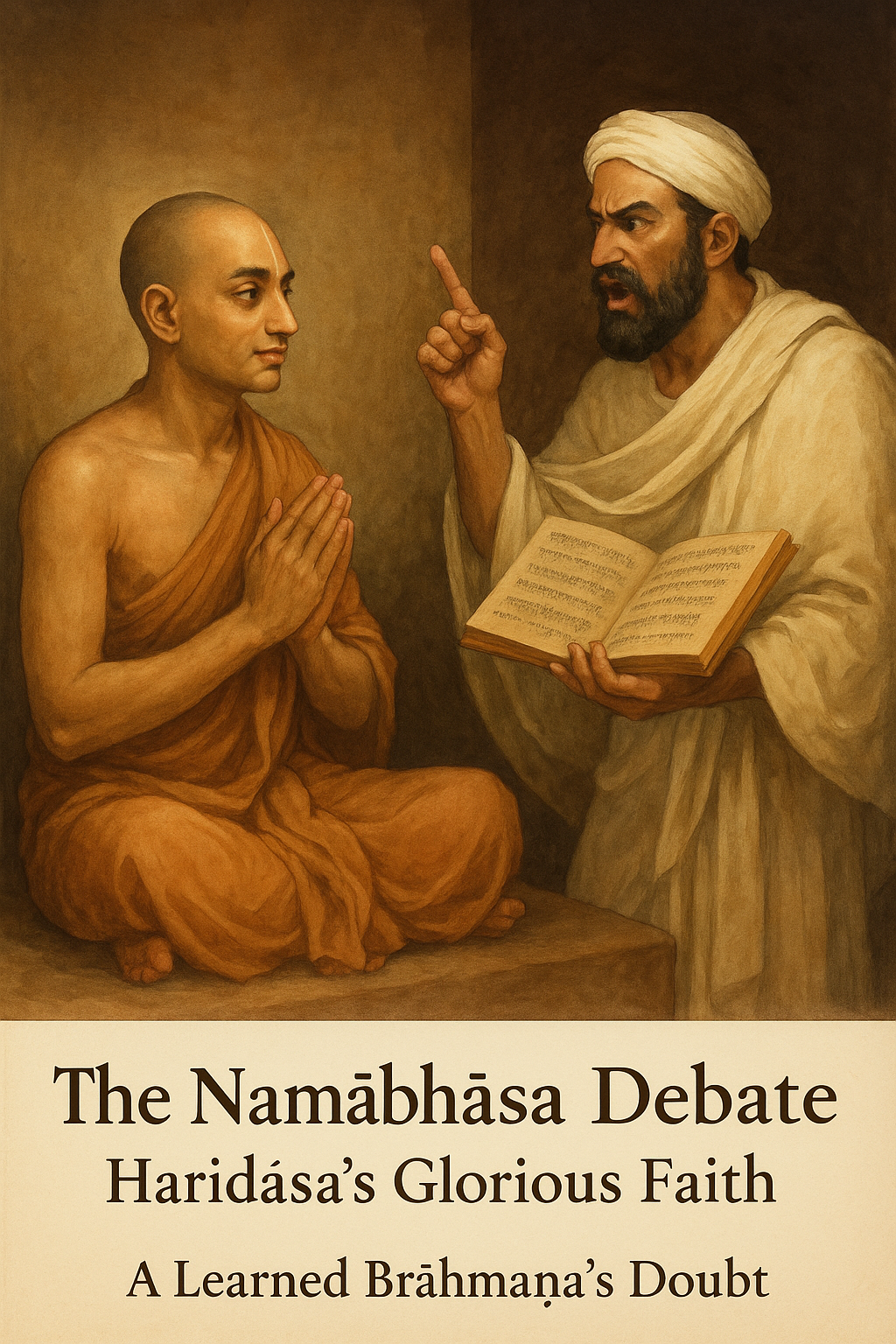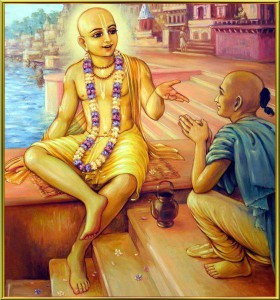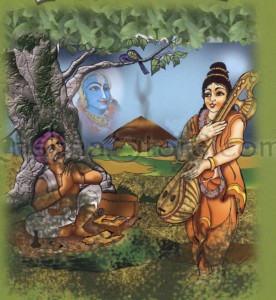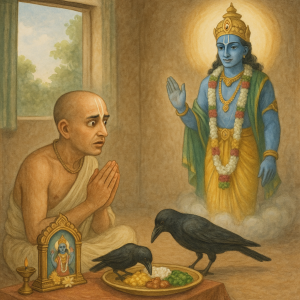A Learned Brāhmaṇa’s Doubt
During his stay in Phuliyā, Śrīla Haridāsa Ṭhākura was deeply respected by simple villagers and humble devotees for his constant chanting and spiritual radiance. Yet, among some so-called scholars, his popularity created envy.
One day, a learned brāhmaṇa scholar approached him with a challenge. Haridāsa had been publicly proclaiming that even a mere reflection of the holy name—namābhāsa—could liberate a person from material bondage.
The brāhmaṇa said mockingly, “You claim that namābhāsa grants liberation? Show us the śāstra! We know only śuddha-nāma, the pure name, grants prema-bhakti. Your words sound poetic, but do they stand on scriptural ground?”
Haridāsa’s Bold Response
With folded hands and great humility, Haridāsa bowed and said, “O brāhmaṇa, you are certainly learned. Yet I speak not on the basis of speculation but on eternal truth revealed by the śāstra.”
He continued, “It is written in the Vāyu Purāṇa, Viṣṇu-dharma, and other texts that:
Even if one unknowingly or accidentally chants the name of the Lord—even without understanding its meaning—that person becomes liberated from sins and is destined for liberation.”
Haridāsa gave examples: the story of Ajāmila, who chanted the name “Nārāyaṇa” at the time of death without intending to call the Lord, and was saved. This was clearly namābhāsa, not śuddha-nāma, and yet he was liberated.
The brāhmaṇa grew silent, unsure how to refute Haridāsa’s logic. But inwardly, he became angry, burning with envy.
The Envy of the Brāhmaṇa
Later, in private, the brāhmaṇa mocked Haridāsa. “He was born a Muslim, yet he dares to interpret śāstra to us? This is a disgrace.”
But the simple people loved Haridāsa more and more, seeing his sincerity and hearing his powerful discourses on nāma.
That night, the Lord revealed in the dream of one of His devotees:
“Haridāsa speaks the truth. Those who doubt him are in illusion. He is My devotee, and he speaks My words.”
Lord Caitanya Affirms Haridāsa’s Realization
Years later, when Lord Caitanya met Haridāsa personally, He embraced him and said with tears in His eyes:
“What you have spoken about the holy name is the truth. Even namābhāsa can liberate the soul, and pure nāma can grant prema-bhakti. You are Nāmācārya, the teacher of the holy name.”
Haridāsa, in his humility, wept and said, “I am unqualified, my Lord. I only repeat what I have heard from your śāstra and your devotees.”
Lord Caitanya replied, “You are empowered by the Lord Himself. The power of the holy name is fully manifest in you.”
Lessons to Be Learned:
- Even imperfect chanting (namābhāsa) can liberate a person from material existence.
- A devotee must speak the truth with humility, regardless of opposition or criticism.
- The holy name is independent, powerful, and merciful—it acts even when chanted unintentionally.
- Envy toward pure devotees leads to spiritual blindness, while humility brings divine revelation.
“The holy name of the Lord acts even when uttered in jest, in singing, or when used to indicate something else.” – Śrīmad-Bhāgavatam 6.2.14
Origin of the Story: This pastime is described in Caitanya-bhāgavata (Ādi-khaṇḍa, Chapter 16–17), Śrī Caitanya-caritāmṛta (Antya-līlā 3.65–3.76), and referenced throughout The Divine Name and works by Śrīla Bhaktisiddhānta Sarasvatī Ṭhākura.



